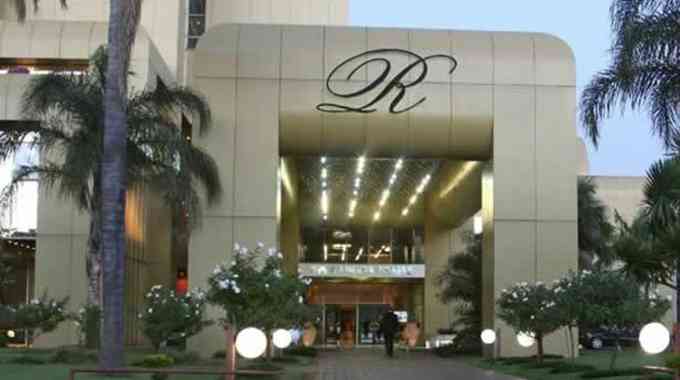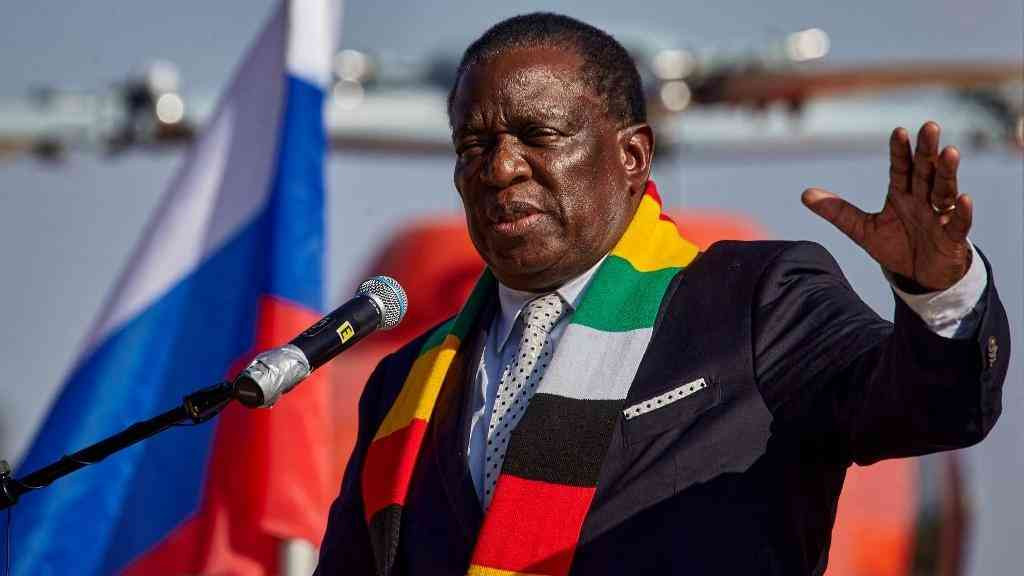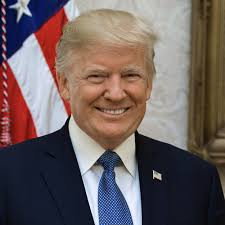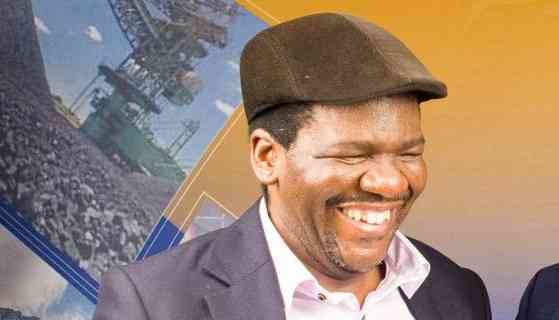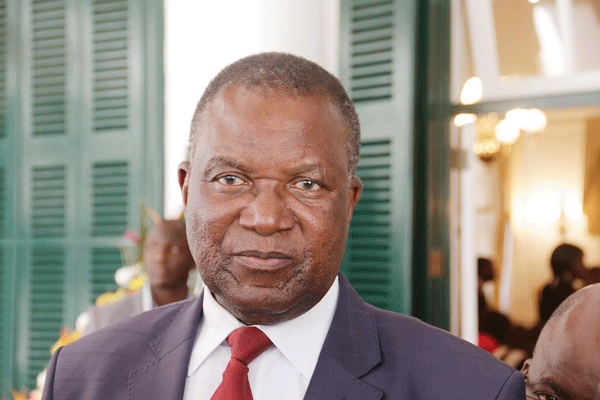
An explosive social media broadcast by a Zanu PF insider last week sparked debate about an alleged cartel controlling fuel distribution in the country amid allegations of abuse of foreign currency.
The big interview BY VENERANDA LANGA

Speculation was rife that William Mutumanje, aka Acie Lumumba, was targeting Sakunda owner Kudakwashe Tagwirei whom he described as Queen B.
Tagwirei’s giant fuel firm also controls the Beira-Feruka oil pipeline, which supplies most of Zimbabwe’s fuel and this fuelled debate that he is getting preferential treatment from government to build a monopoly in the industry.
However, Energy minister Joram Gumbo (JM) told our senior reporter Veneranda Langa (VL) the claims were being made by competitors or people that did not understand the industry.
He also revealed that the government had inked some deals to address the biting fuel shortages. Below are excerpts from the interview.
VL: Almost a month after you declared that fuel shortages would end in a matter of days, Zimbabweans are still spending a lot of their productive time in meandering queues. Did you underestimate the crisis?
JG: Not really, I did not underestimate the crisis. The issue about fuel shortages is not a new phenomenon, and regarding the 2018 shortages, signs of shortages started showing as early as April.
- Chamisa under fire over US$120K donation
- Mavhunga puts DeMbare into Chibuku quarterfinals
- Pension funds bet on Cabora Bassa oilfields
- Councils defy govt fire tender directive
Keep Reading
It then got worse when we went for elections. The position of the ministry, whose mandate is to provide fuel, must be separated from other issues. As Energy minister, I came up with mitigation proposals, but they also need to be complemented by other ministries.
When I said that there was enough fuel in the country, it was /is a fact. The public is aware that the provision of fuel in the country is the responsibility of international companies mandated by government to regulate supply. What is happening is that they bring in their fuel stored in bondage at Msasa and Mabvuku, but we cannot access it until we pay for it in foreign currency.
These tanks at Msasa and Mabvuku have enough fuel and once it is paid for in foreign currency, it is released. I report regularly on how much fuel we have and how long it will last.
For companies like Zuva Petroleum and Anjin to access fuel, they have to pay in foreign currency and that is where the Finance ministry and Reserve Bank of Zimbabwe (RBZ) come in. There is enough fuel in the country right now.
RBZ governor John Mangudya has been allocating $20 million per week for that fuel, but it is in bond in Mabvuku and Msasa, and without forex, we cannot access it and that is the situation right now. The international prices of fuel have also gone up and I have said to Mangudya that he must come up with an allocation of $35 million per week instead of the current $20 million in order to keep bringing enough fuel into the country.
I have also managed to negotiate with two other international suppliers of fuel so that they can give us lines of credit for up to 12 to 18 months so that we are given fuel and then we pay for it later to augment what the RBZ is doing.
Of the two international companies that I have engaged to give us credit lines, one of them has already issued credit lines to collect 42 million litres of fuel.
The other company is coming up with a US$5 million facility to provide fuel for the next 18 to 20 months. The problem is that fuel is used by many sectors like command agriculture, mining, industry, motorists and others.
VL: The RBZ this week suspended four directors following allegations that they were linked to a cartel that controlled fuel distribution in the country. What is your reaction to those allegations and were you aware that there were such cartels that could be contributing to fuel shortages?
JG: I am really not aware of that, but what I can say is that I will wait for the investigation to be finalised. I can also add that despite the issue of cartels, there are other fuel deals taking place like the black market. I recently came from Zambia where we discovered that Zambia impounded 15 trucks with bellies at Chirundu Border Post that contained 1 800 to 2 000 litres of fuel from Zimbabwe to Zambia for the black market. They impounded 16 other trucks. That is the smuggling that I know about, particularly of fuel. As for the RBZ employees, I am not privy to what happened because I was out of the country and I cannot accuse them before they are investigated.
VL: In your view, is the current situation where only three big players get preferential treatment in allocation of forex to import fuel not open to abuse?
JG: No, the allocation is not only to those few companies that you are talking about. There are actually around 50 companies — some small which end up being given cash for purchases of fuel.
The big companies that we have in the country are actually not going to benefit from the fuel, which we will procure through the facilities of the two international companies that I referred to earlier.
Companies like Anjin, Zuva and Petrotrade, which are under the RBZ scheme are not going to get that facility. We will feed more to those that are not getting an allocation from the RBZ.
VL: There are allegations that the fact that Puma/Sakunda controls the fuel pipeline has created a monopoly that compromises the whole industry. What is your reaction to that?
JG: Unfortunately, those allegations are coming from people that are not privy to the background of the whole matter. The pipeline from Beira to Feruka is a pipeline that is owned by the Zimbabwe government and Mozambique through a company they have formed. It so happens that Sakunda and Puma have shares in that company, National Oil Infrastructure Company of Zimbabwe (Noic), and those allegations are not true because it is a business enterprise with Companhia Do Pipeline Mozambique-Zimbabwe (CMMZ), a Mozambican company. Sakunda and Puma — because of their joint operations — have shares and it is not that they have advantages when oil comes into the country.
Fuel comes into the country under Noic and it is never influenced by Sakunda or Puma. Noic is responsible for distribution of fuel. However, I can now say that the Environmental Management Agency (EMA) have now allowed Noic to pick fuel and transport it 24 hours up to January 2019.
VL: Former Bulawayo South MP Eddie Cross in his latest blog makes reference to this “cartel” that has monopoly over the pipeline and says neighbouring countries have since stopped using the facility because of the high tariffs. What are your comments on that?
JG: I have very high regard for Cross as he is a knowledgeable person, but there is one thing I need to say. Cross is an interested party in fuel as he wants to bring in fuel through a second pipeline, and he has spoken to me about that issue. However, I must say that from my discussions with Cross when we talked about a second pipeline as minister responsible for energy, it was to ensure that fuel can be distributed to Botswana, Democratic Republic of Congo and Malawi through the second pipeline so that we make Zimbabwe a hub and that is why I said I wanted to see big storage tanks in Bulawayo.
The ideas I have are to make Zimbabwe a distributor from Bulawayo to other countries. So, Cross is talking of something he knows — and of which I cannot argue about because I am not interested in small fights. Those are issues you find in competitors, but I represent government.
VL: In your view, what are the long-term solutions to the fuel crisis in Zimbabwe?
JG: As far as I am concerned, we do not produce oil in the country, but what we must do is that there must be self-sufficiency of the product. We must have alternatives like biofuels in the country — issues like jatropha. We definitely need to be looking at other sources of fuels. As a country, we need to support projects like ethanol so that we can continue to do adulteration between oils we get and the ethanol we produce in the country.
We must also take advantage of using some of our local products that we mine like lithium so that we diversify the provision of fuel in the country and ensure there is enough energy for local consumption and do it right in the area of importation of products.
VL: Do you think the fuel subsidies where the government buys the product using foreign currency from exporters at a 1:1 rate to the US dollar but the product is sold at RTGS rates is sustainable?
JG: Our situation is not that normal for various reasons and you know where we have come from. Buying fuels for companies is not exactly what government should be doing, but government is responsible for looking after its people, and that is how we end up getting involved so that we make life easier. The 1:1 rate of the United States dollar and RTGS is what we believe we must take as government policy. But what is happening outside government areas of influence is that the rate is one US dollar to five or six bond notes or RTGS.
People have created speculation as their own employment and are now making the US dollar and bond notes unequal yet the bond notes are supported by an Afreximbank facility and so there is that distortion. But I must say that government has no choice, but to look after its people. As far as we are concerned — and President Emmerson Mnangagwa repeated that point last Friday that according to government the US dollar is the same rate with the bond notes. Your question is tricky because it is not about fuel, but it is about the money market.
VL: Is the government considering relaxation of controls in the fuel industry to ensure shortages do not recur?
JG: That will lead to disaster for industry and for people because if you are going to allow anybody to bring fuel, they will then charge it at the rate at which they brought it into the country.
There will be no controls through the Zimbabwe Energy Regulatory Authority, which controls prices so that our people can be protected. Otherwise, if we deregulate oil control, it will be disastrous.
VL: Is Sakunda/Puma still being allowed to import fuel duty-free for the Dema power plant and Africa Chrome Fields? What was the justification for the preferential treatment?
JG: As a newly-appointed Energy minister, I was not there when that happened. I was not aware of the issue. However, at the moment we are not dealing with Dema. We are not importing or supplying any fuel for the Dema project. We are not involved, unless there is something that I have not been briefed about since I am a month old in the ministry and I cannot claim to have known everything so far. I think I will be able to get more information about Dema soon and about what is happening there.
VL: Zimbabweans are also struggling to get liquefied petroleum (LP) gas for cooking. What is the government doing to address the shortages?
JG: The situation about LP gas is very sad. What is happening is that LP gas has not been allocated foreign currency for its importation. Now, there is only Zuva, which is bringing in LP gas through letters of credit.
Zuva has been using their letters of credit to buy gas and so they have been the sole suppliers.
But what is happening is that people are buying LP gas from Zuva at $2, 50/kg and they double the price or charge it at $7/kg, but I have now requested the RBZ to allocate funds in foreign currency for importation of gas and it is something that is going to be implemented and more gas will be coming through other companies. It is a sad and regrettable situation, which we had not anticipated would happen.
VL: What exactly happened when you banned jerry cans and later withdrew the ban?
JG: At times you want to do something good for the people, but they end up abusing it on social media channels. I am now called by the nickname “jerry cans”, but I was only trying to protect the public from being abused by unscrupulous dealers. I went to one filling station and there was a long queue of jerry cans and another of vehicles and I asked if it was genuine that people needed fuel in jerry cans or they wanted to take it to the black market.
I cannot ban jerry cans because the regulations do not allow me to do so, but I appeal that they should not be used to buy fuel for the black market. There can be genuine cases where a car runs dry in the middle of the bush, but we must note that there are unscrupulous people out there.
I took that decision after people phoned me complaining and I wanted to defuse the situation.
I hope fuel stations will try to be honest in whatever they do.

